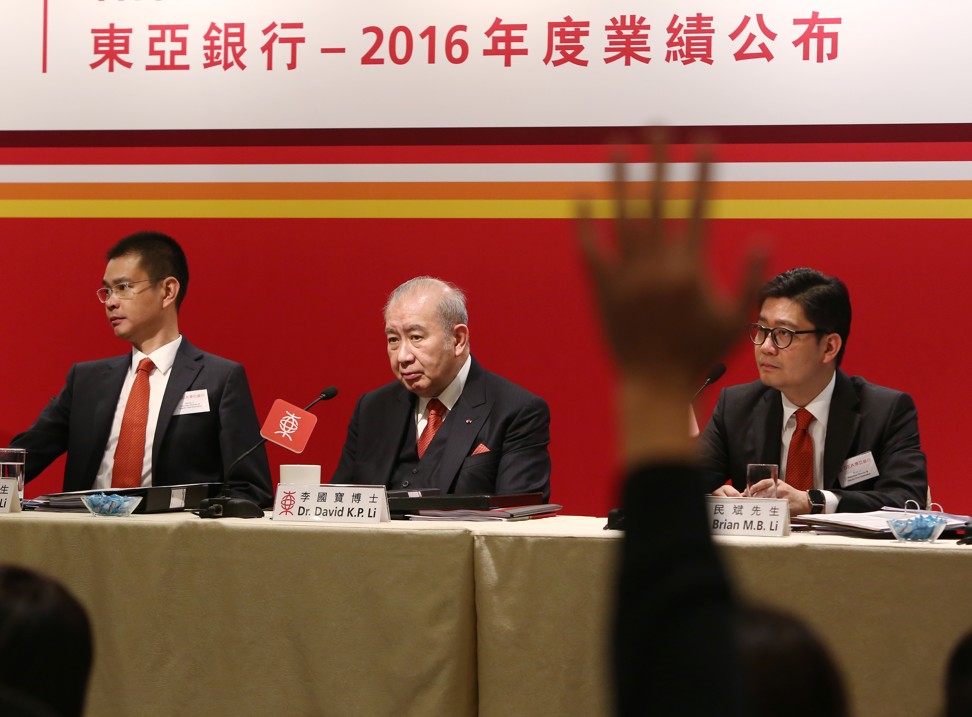
New | Hong Kong’s family businesses need to enhance governance to succeed
Hong Kong’s family businesses face a number of challenges, ranging from external risks to the issue of succession planning
For better or for worse, business in Hong Kong has always been a family affair. The PwC family business survey for 2016 noted that more than 60 per cent of the private sector in Hong Kong was accounted for by family businesses and that the city’s top 15 families controlled assets worth 84 per cent of gross domestic product.
The Hong Kong stock exchange is made up of three types of companies: family-controlled firms, Chinese state-owned enterprises (SOEs) and a handful of companies with a diversified ownership structure primarily headquartered overseas.
Of those, family businesses truly count as “Hong Kong companies”.
They are the ones whose ruling families (and their mistresses) fill the gossip columns of the city’s papers. They are the companies whose succession plans are pored over by everyone from those same gossip columns to equity analysts at investment banks and brokerages. Above all, it is these families and their businesses that get the blame when accusations start flying about Hong Kong’s businesses stagnating.

However, Hong Kong family businesses are not necessarily known for agility.
In fact, it seems that family businesses here are already starting to chart a more cautious course in the face of the more difficult external environment. The PwC survey found a substantial rise in conservative strategies among Hong Kong and Chinese family businesses, with many choosing steady growth rather than aggression because of the challenging external environment.
There are two other factors that are making it difficult for family businesses to keep up with the changing needs of their industries.
The first is the inability of some to attract the talent that is needed to cope in difficult times as often this talent lies outside the family. Most research shows that diversity in management teams is a good thing, yet families, by their very nature, are not very diverse organisations.
“One typical problem for family businesses right across Asia is that they are not very open to outside professional management,” said Joseph Fan, a professor at the Chinese University of Hong Kong who specialises in family businesses.
For a well-run family business, this is not much of a problem as it can bring in professional managers with little trouble. But a disorganised family business may not be able to attract or make the best use of this talent and those companies are now starting to go to the wall.
“We are seeing a shift as those disorganised companies that can’t attract external talent tend not to do well in the current environment. It’s just too difficult,” said Eric Landolt, head of family advisory for Asia-Pacific at UBS.
The PwC report noted that family businesses in Hong Kong said they had to work harder to recruit and retain top talent.
One problem for family businesses across Asia is they are not very open to outside professional management
The other challenge is succession.
“Many Hong Kong family businesses were founded in the years following [the second world war], and this means that their founders are now at an age where soon they will need to pass on their businesses,” said Bernard Rennell, global head of family governance and family enterprise succession at HSBC Private Banking.
One family that illustrates the two problems well is the Li family, one of Hong Kong’s so-called four famous families, and in particular the branch of the family led by David Li Kwok-po, the chairman and chief executive of Bank of East Asia.
There is little doubt that Hong Kong’s banks are facing difficult times, and barely a week goes by without a commentator remarking that Hong Kong is falling behind Singapore in its quest to be Asia’s financial services hub.
These commentators usually cite as evidence the city’s slow adoption of emerging fintech. Once again, technological change is proving part of the problem for family-controlled businesses needing to adapt.
Last year, Li, flanked by his sons Adrian and Brian, announced a new plan to cut HK$700 million in costs from the business, citing the challenging operating conditions.
However, succession is also a factor here as David Li, the grandson of the bank’s founder Li Koon-chun, is in his late 70s. Whenever he meets the media, it is common for him to be asked whether he has plans to step down from either of his roles.
However, it is the perceived ineffectiveness of their governance that has put BEA and the Li family firmly in the spotlight as the bank’s directors, including David Li, his sons, his brother and two cousins, are currently being sued by US activist hedge fund Elliott Management, which is also urging the bank be put up for sale. Elliott is alleging corporate governance failings that have, it claims, “resulted in the entrenchment of management control over BEA at the expense of minority shareholders”,
In a statement issued in response, David Li said the bank “will vigorously resist Elliott’s attack on the bank and its directors”.
The legal proceedings are continuing, but regardless of the result, it has at least put the spotlight back on family businesses in Hong Kong and how well they can adapt to changing times.
The solution offered to both the challenges of bringing in external management and succession is better governance.
“Corporate governance is important, but family governance is the crucial aspect,” Rennell said.
Landolt draws the link explicitly between governance and bringing in external talent.
“If you have a family-controlled business where the structures and the governance are vague, and it is not clear how the decisions are taken at the ownership level, that will probably not be attractive to external management. It will be challenging for those companies to attract key professional talent,” he said.
Corporate governance is important, but family governance is the crucial aspect
Whether this is a problem or not depends on what the family business is doing.
“It is not the case that all family businesses should bring in as many outsiders as they are able to,” Fan says, offering as an example traditional industries such as restaurants or food and beverage.
“In those sectors, they face stable demand from society, so it’s very simple. You can provide family members generation after generation, and you do not need professional managers unless you have an ambition to go global,” he said.
“On the other hand, for industries or environments characterised by high volatility and lots of changes, such as the hi-tech sector, then you have to engage outside professionals to be able to cope with the new environment. If a family business is in those volatile uncertain environments, in order to be successful, they need to engage professional managers.”
There is even a difference in the type of independent non-executive directors that companies are willing to seek.
“Family businesses tend to be better at seeking [independent non-executive directors] from professions like banking and law as that is what they are accustomed to doing,” said Woo Pat-nie, KPMG’s expert on family businesses.
“However, family businesses in Hong Kong are much less likely to look to engage outside advisers in areas like technology or new developments because they have never had to do so in the past.”
(These are excerpts of an article published in the May issue of The Peak magazine, available at selected book stores and by invitation)

